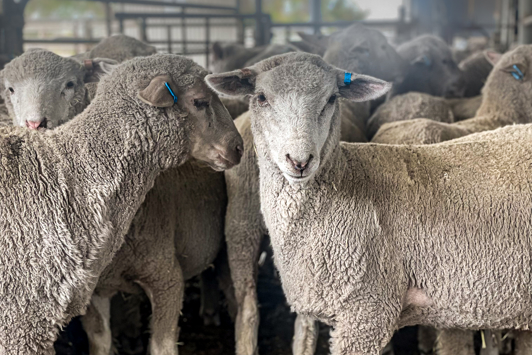The ruminant feed ban is in place to reduce the risk of the cattle disease bovine spongiform encephalopathy (BSE, also known as ‘mad cow disease’), occurring in Australia.
Australia has never had a case of BSE and keeping Australia free is important to protect the health of animals and people in Australia, and to support international market access for our livestock industries.
The department is responsible for enforcing the ruminant feed ban in Western Australia.
RAM is any material that consists of, or contains, matter from an animal (including fish and birds). It does not include gelatine, milk or milk products.
The following are examples of RAM and must not be fed to ruminants:
- meat and offal
- rendered animal meals such as meat and bone meal, poultry, fish and feather meals
- feed that contains one or more types of animal matter including:
- poultry feed including chicken, duck, and turkey feed
- pig feed
- dog and cat food
- pig and poultry manure / litter
- eggs
- organic fertilisers and composts such as blood and bone fertiliser, mushroom compost, and any other compost made with animal matter.
The ruminant feed ban has requirements that must be met along the entire animal feed supply chain, including stockfeed manufacturers, feed retailers and stock producers.
The requirements include:
- Ruminants must not be fed or have access to RAM.
- Feed for ruminants must be produced in a manner that ensures it does not contain RAM.
- All manufactured stockfeed must be labelled with a statement specifying whether it does or does not contain RAM.
- Ruminant feed must be stored in a way that ensures it does not come into contact with RAM.
Australia’s ruminant feed ban was introduced in 1996 to help keep Australia free of bovine spongiform encephalopathy (BSE, also known as ‘mad cow disease’).
BSE is a fatal brain disease that affects cattle.
BSE can be transmitted to cattle when they eat feed contaminated with the BSE protein.
The consumption of BSE-affected meat has also been linked to a human disease, variant Creutzfeldt-Jakob disease.
Australia is free of BSE and internationally recognised as having the lowest possible risk status for BSE. The ruminant feed ban has been a critical part of achieving this status. Additionally, Australia’s strict biosecurity requirements include border screening, import controls, and surveillance and monitoring of sheep, goats and cattle for signs.
Maintaining Australia’s freedom from BSE is important for protecting the health of humans and animals, and for maintaining consumer confidence in our livestock industries.
Anyone who owns or takes care of ruminants must make sure they are not fed RAM. You can do this by following these steps:
- When purchasing manufactured feed for ruminants, (such as pellets, stock licks and premixes), check for the following statement on the packaging: This product does not contain restricted animal material. It should be found on the bag or container for packaged feed, or the delivery docket for bulk feed.
- Ensure ruminants cannot access feed containing RAM that you have on the property (e.g. poultry or pig feed, or pet food).
- Never re-use poultry or pig feed bags for ruminant feed.
- Keep ruminants out of paddocks that have been top-dressed with poultry manure or fertiliser containing RAM (e.g. chicken litter or blood and bone fertiliser) for at least three weeks after spreading or until there has been adequate regrowth.
- Do not allow ruminants access to piles or organic fertilisers.
Manufacturers and resellers of ruminant feed must make sure it is:
- produced or re-bagged in a way that ensures it does not contain RAM.
- stored in a way that ensures there is no opportunity for it to come into contact with RAM (such as pig and poultry feed, bags of meat and bone meal, or blood and bone fertiliser).
- labelled correctly with a RAM statement, where required. Stockfeed made entirely of basic feed (such as grains, seeds, hay and chaff) does not need to be labelled.
The requirements of the ruminant feed ban are contained in the Biosecurity and Agriculture Management (Agriculture Standards) Regulations 2013.
The department conducts regular inspections of stockfeed manufacturers, retailers and livestock producers to verify compliance.
Failure to comply with ruminant feed ban regulations can result in enforcement action.
Contact us
-
Livestock biosecurity

